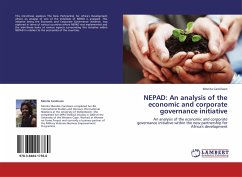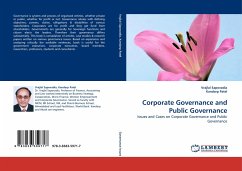Despite it popularity in the private sector, corporate governance has had little traction in the public sector. This study explores the successes and failures of corporate governance as a means of filling the accountability and control gap in Departments of State in the Australian public service. As with other Western democracies, the introduction into Australia of public service reform marked a substantial shift away from the traditional process-based public sector model to a model that increasingly emulated the private sector. These reforms, however, failed to address directly the changes needed in accountability and control in the public service. Corporate governance exists in both private and public sectors as a dichotomy of formal and informal elements, and the informal elements play a paramount role in achieving proper results for government. The Australian immigration department is used to demonstrate that even an organisation with a proud international record in assistingthe most vulnerable in the world, can fail if its corporate governance mechanisms are not universally and correctly applied, resulting in outcomes described by an independent inquiry as catastrophic'.
Bitte wählen Sie Ihr Anliegen aus.
Rechnungen
Retourenschein anfordern
Bestellstatus
Storno








